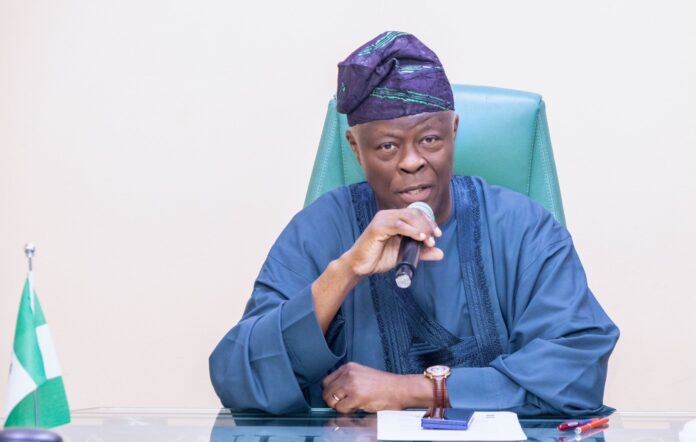The Federal Government has launched the Federal Treasury Receipt (FTR), a major digital reform aimed at curbing revenue leakages and improving fiscal transparency.
The new system is expected to provide a single, standardised, and digitally verifiable proof of all payments made into federal accounts, ensuring that every government-issued receipt matches actual funds received by the Treasury.
According to the Ministry of Finance, the FTR marks a significant step toward tightening public financial controls and eliminating long-standing loopholes that have undermined accountability in revenue collection.
The FTR rollout coincides with the Central Billing System (CBS), which standardises the pricing and billing of government services.
Both systems feed into a broader architecture called the Revenue Optimisation and Assurance Platform (RevOp), an end-to-end digital ecosystem that went live on August 1, 2025.
According to the Finance Ministry, RevOp provides real-time visibility into revenue inflows from ministries, departments, and agencies (MDAs), enabling automated reconciliation and settlement between the Treasury and revenue-generating bodies.
In its words, the goal is “to ensure every naira due to the Federation is captured, reconciled, and accounted for.”
If the system performs as intended, it could reshape Nigeria’s fiscal trajectory in several important ways.
Digital receipts would broaden revenue capture by minimising unrecorded inflows and strengthening audit trails, while transparent verification of payments could boost public trust and encourage voluntary tax compliance.
Nigeria notoriously has a very low average tax to GDP ratio of less than 10% highlighting the need to use technology to drive revenue accountability and plug leakages.
The International Monetary Fund (IMF), in its 2025 Article IV consultation, again emphasised the need for Nigeria to expand its tax base, improve collection efficiency, and strengthen digital oversight.
It appears the new FTR–CBS–RevOp ecosystem directly targets these weaknesses.
Over time, reduced leakages may create more fiscal space for investments in infrastructure, education, and healthcare, while stronger non-oil revenue collections would help reduce the economy’s dependence on oil.
It would be recalled that in August 2025, the government also tasked the Revenue Mobilisation, Allocation and Fiscal Commission (RMAFC) with revising the revenue-sharing formula, signalling broader fiscal reforms aimed at both collection and equitable distribution.
The Ministry of Finance stated it has commenced a 30-day pilot across ten federal agencies, focusing on compliance testing, infrastructure readiness, and stakeholder adoption.
A nationwide deployment will follow upon successful evaluation.
This coincides with preparations for the Nigeria Revenue Service (NRS), scheduled to take off in January 2026, which will unify revenue administration under one central authority.
However, questions persist over whether MDAs will fully adopt the FTR and integrate all receipts digitally, and if the existing ICT infrastructure can support real-time nationwide tracking.

